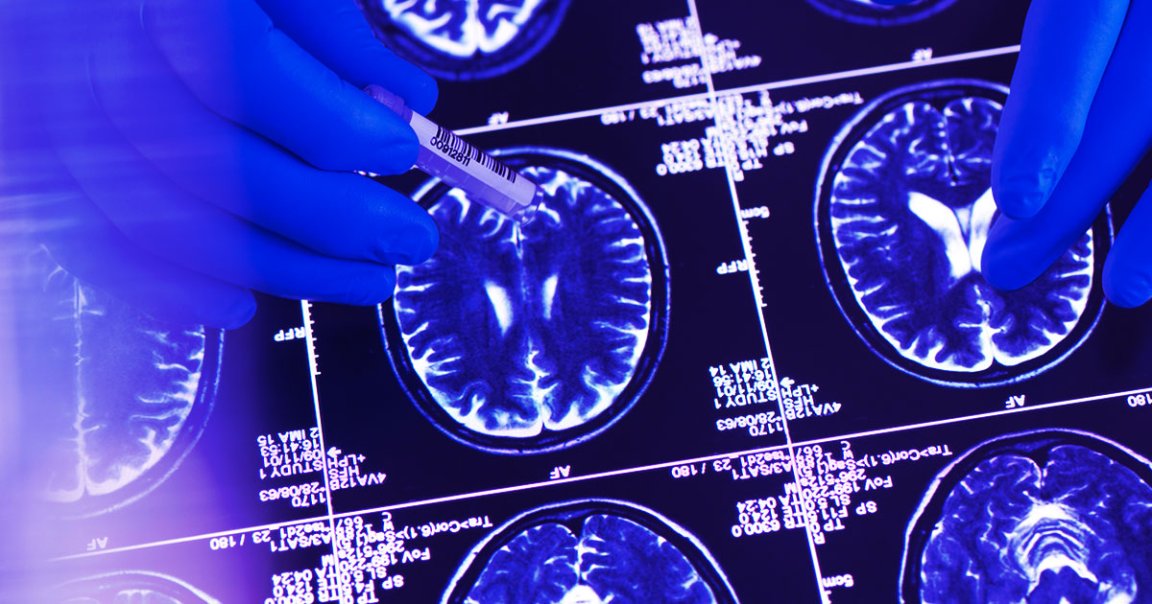
Scientists may have just found a fascinating new clue in the long and stubborn road to an effective treatment for Alzheimer’s disease.
In a new study, an international team of scientists claims to have unlocked the secret of one man’s intriguing resilience to the disease — a discovery that’s giving doctors new hope in our long-standing battle against the memory-destroying brain disorder.
As The New York Times reports, the Colombian man at the center of the study, which was published on Monday in the journal Nature Medicine, should have started to experience symptoms of early-onset Alzheimer’s in his early 40s. He had a genetic mutation — PSEN1-E280A — that seemingly guaranteed it, his brain had even started to atrophy, and perhaps most tellingly, scans of his brain showed the development of amyloid plaques and long lines of tau proteins, both of which are highly indicative markers of the devastating illness.
And yet, despite that gene mutation and the harrowing condition doctors saw in his brain scans, the man didn’t actually begin to succumb to the disease until the older age of 67, over 20 years after he was projected to start experiencing side effects.
“We characterized the world’s second case with ascertained extreme resilience to autosomal dominant Alzheimer’s disease,” the researchers wrote, referring to a similar case of Alzheimer’s resilience that made waves back in 2019. “The male remained cognitively intact until 67 years of age despite carrying a PSEN1-E280A mutation.”
But where it gets really interesting is that the scientists found that the man in question actually has a second gene mutation that appears to have stalled the disease out at least for a few precious decades.
That mutation, which the researchers termed COLBOS, was able to block the disease from entering the man’s entorhinal cortex, a part of the brain related to memory and object recognition. It did so by producing an ultra-potent version of a protein which, per the NYT, “ultimately prevents tangled strands of tau proteins from sticking together and forming the structures that are a characteristic of Alzheimer’s.”
The hope, say the researchers, is that the potent and protective protein could be replicated and bottled into a pharmaceutical treatment.
“This really holds the secret to the next generation of therapeutics,” study coauthor Joseph Arboleda-Velasquez, a cell biologist at Massachusetts Eye and Ear in Boston, told the NYT. (Arboleda-Velasquez has co-founded a biotech company seeking to create pharmaceuticals based on this research.)
Though the protein may not be a silver bullet on its own, other researchers told the NYT that such a drug could potentially be used in more comprehensive therapies.
The history of Alzheimer’s research has been littered with promising findings that ultimately turned out to be dead ends, but the discovery of patients with a strong natural resilience to the disease is unquestionably an exciting lead in the oft-grim world of Alzheimer’s treatment and prevention.